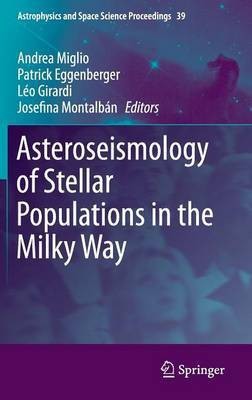Asteroseismology of Stellar Populations in the Milky Way(English, Hardcover, unknown)
Quick Overview
Product Price Comparison
The detection of radial and non-radial solar-like oscillations in thousands of G-K giants with CoRoT and Kepler is paving the road for detailed studies of stellar populations in the Galaxy. The available average seismic constraints allow largely model-independent determination of stellar radii and masses, and can be used to determine the position and age of thousands of stars in different regions of the Milky Way, and of giants belonging to open clusters. Such a close connection between stellar evolution, Galactic evolution, and asteroseismology opens a new very promising gate in our understanding of stars and galaxies. This book represents a natural progression from the collection of review papers presented in the book 'Red Giants as Probes of the Structure and Evolution of the Milky Way', which appeared in the Astrophysics and Space Science Proceedings series in 2012. This sequel volume contains review papers on spectroscopy, seismology of red giants, open questions in Galactic astrophysics, and discusses first results achieved by combining photometric/spectroscopic and seismic constraints on populations of stars observed by CoRoT and Kepler. The book also reports on discussions between expert researchers in Galactic evolution, specialists in stellar structure and asteroseismology, and key representatives of extensive ground-based spectroscopic surveys such as APOGEE and the ESO-GAIA Spectroscopic Survey, which would serve as a roadmap for future endeavours in this field of research.


